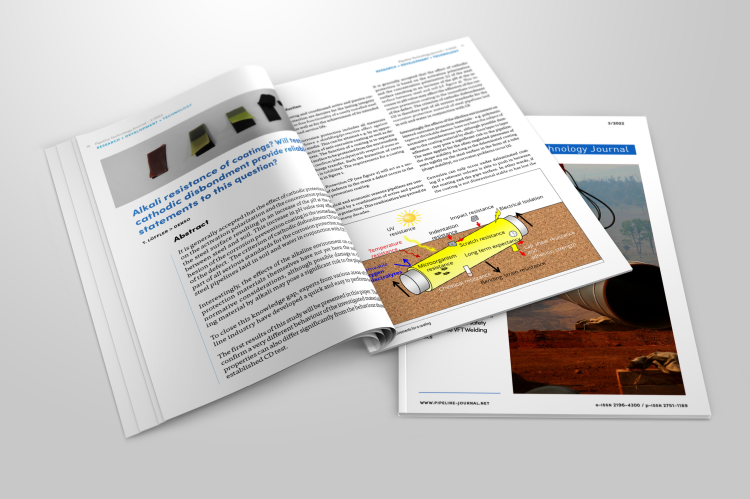Alkali resistance of coatings? Will tests of cathodic disbondment provide reliable statements to this question?

It is generally accepted that the effect of cathodic protection is based on the activation polarization and the concentration polarization of the steel surface resulting in an increase of the pH at the interface between steel and soil. This increase in pH value may affect the adhesion of the corrosion prevention coating in the immediate vicinity of the defect. The criterion of cathodic disbondment CD is therefore part of all serious standards for the corrosion protection material of steel pipelines laid in soil and water in conjunction with CP.
Interestingly, the effects of the alkaline environment on corrosion protection materials themselves have not yet been the subject of normative considerations, although possible damage to the coating material by alkali may pose a significant risk to the pipeline.
To close this knowledge gap, experts from various areas of the pipeline industry have developed a quick and easy to perform test.
The first results of this study will be presented in this paper. The results confirm a very different behaviour of the investigated materials, which properties can also differ significantly from the behaviour shown in the established CD test.
